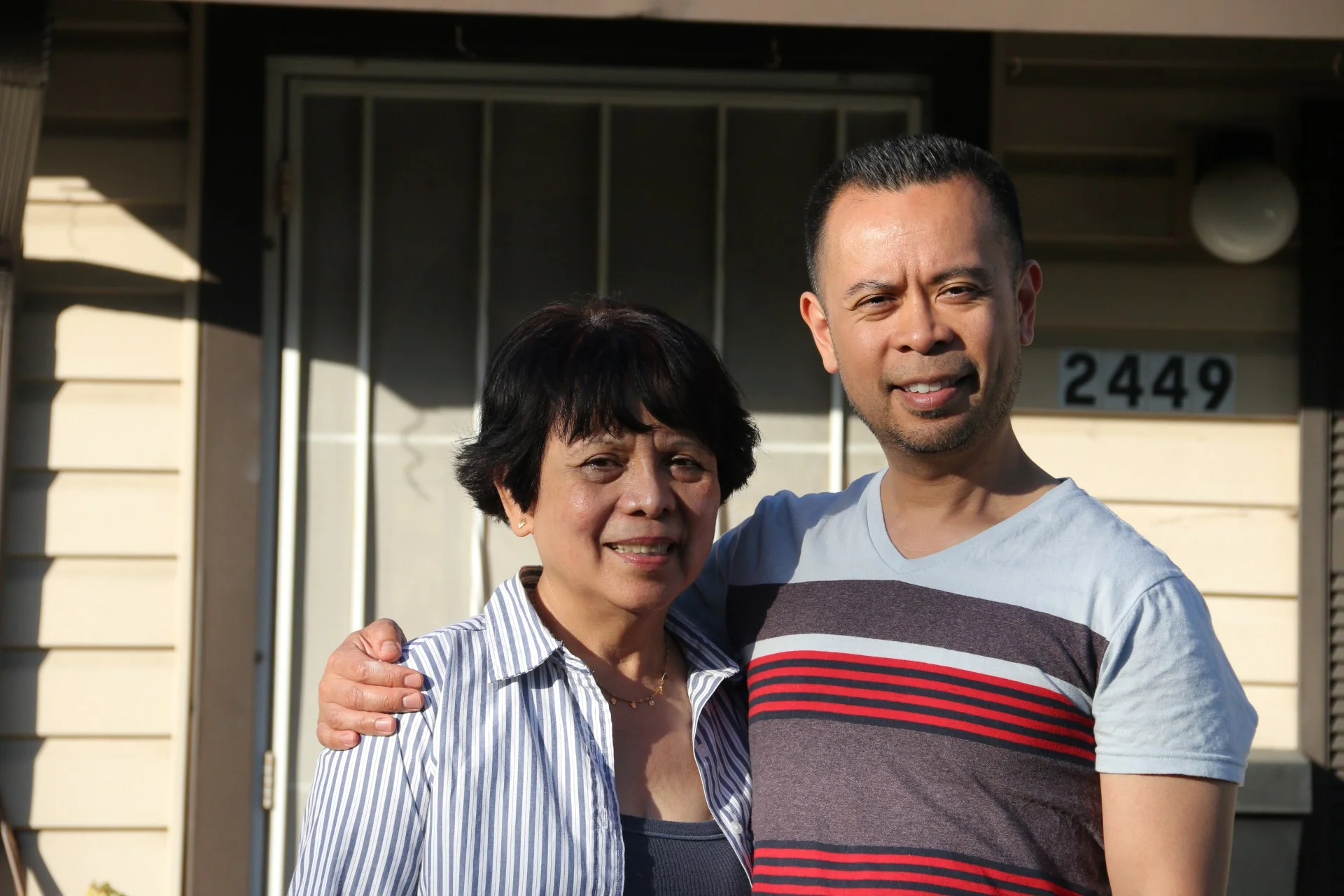Dominic Lim, 41, is first-generation Filipino-American. He grew up never learning to speak his family’s native dialect, Tagalog. (Image credit: Ericka Cruz Guevarra/KQED)
When it came time for Dominic Lim to pick a language to study in high school, he chose French. He chose it not because he was particularly interested in the language, but because the only other option was Spanish.
“I consciously picked French because I didn’t want to learn Spanish and then feel bad that I was learning Spanish, which was so similar to Tagalog …” said Lim. “I know that’s very bizarre but it’s like, if I learned French then I wouldn’t feel so bad that I didn’t learn Tagalog.”
Lim, 41, is first-generation Filipino-American. He never learned to speak his family’s native language, Tagalog.
He loves adobo, sinigang and lumpia. He grew up surrounded by his large extended family, whom he regularly saw at gatherings.
“Going to all these family parties and weddings and everything, you know you hear the older cousins talking to aunts and uncles, but you can’t really join in,” said Lim. “I felt like they probably didn’t respect the kids as much because we couldn’t talk to them in their own language. That was, for me, the biggest, most emotional regret that I have. It’s the most emotional component, for me, of being Filipino.”
It was this language barrier that made him question what it meant to be Filipino in America, a situation not uncommon among Filipino-Americans (including me). According to the most recent U.S. Census data, only about half of the 1.4 million Filipinos in California speak Tagalog, Ilocano or Visayan.
Read the rest of the story here.
Story from KQED News.

